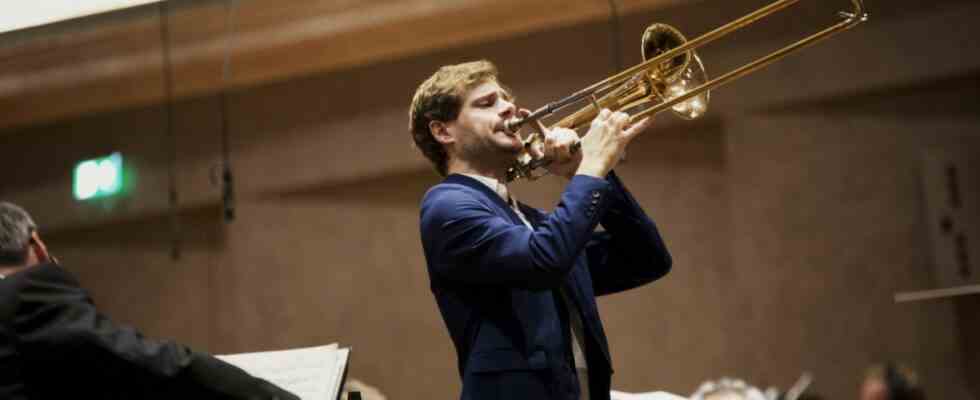Weighty, effective concerts from the 20th and 21st centuries for trombone, flute and piano with a large orchestra dominated the third prizewinners’ concert and thus that of the winners of the 71st ARD Music Competition in the Herkulessaal of the Residenz. An early Haydn string quartet (op. 20/2) was a lonely solitaire in the middle. That Barbican Quartet convinced as in the first passage with noble restraint, great homogeneity of intonation, fine interplay, but also the ability to grab hold and present the capricious of the slow movement between recitative and arioso parts with a sharpened sense and a trace of theatricality. The fugue finale crowning the quartet in three of the six “Sun Quartets” op. 20 was also succinct.
The evening began, moderated by Maximilian Meier in a very humorous way, with the concerto for trombone and orchestra from 1956 by French composer Henri Tomasi (1901-1971). The solo instrument is allowed to demonstrate all dance styles in the most beautiful way and sometimes poach in the realms of jazz. The Brit Kris Garfitt clearly enjoyed his solo assignments with the Bavarian Radio Symphony Orchestra under Joshua Weilerstein, which he mastered with a smooth tone and wonderful phrasing, but he was also able to step back into the second row. Of course, it always remained the dominant colour, even when playing with different mutes, and always demonstrated elegant swing.
Marc-André Dalbavie’s Concerto for Flute and Orchestra from 2006 reveals the successful music dramatist, who composed “Charlotte Salomon” for the 2014 Salzburg Festival, for example, so vividly and pointing beyond absolute music the score of the Frenchman, who was born in 1961, sounds at almost every moment. The Korean Yubeen Kim was able to show all facets of his skills here.
Again increases compared to the final round
Sergei Rachmaninoff’s rarely played Fourth Piano Concerto, which can be heard here in the 1941 revision, was the finale and a final highlight of the 71st ARD Music Competition, which was finally able to take place again in front of an audience in all rounds. And that in many respects, because both the 21-year-old Austrian and the BR-Symphoniker were able to improve on the expression and naturalness of the interaction compared to the final round. The symphonic concertante first movement, the Largo, which peculiarly alternates between the character of a funeral march and proud self-assurance, or the finale, which is only cheerfully brilliant at first, could hardly be played better. Sternath was able to perfectly balance the powerful paw and the sensitive formulation of nuances.

